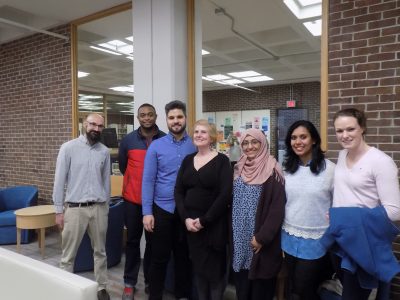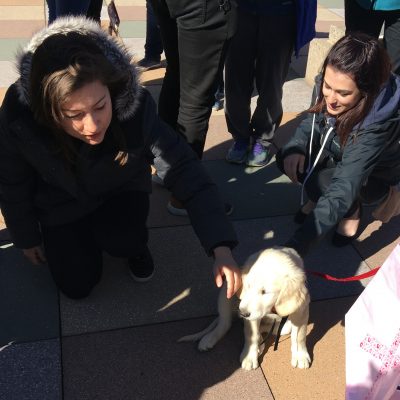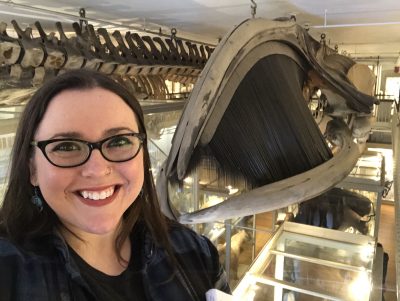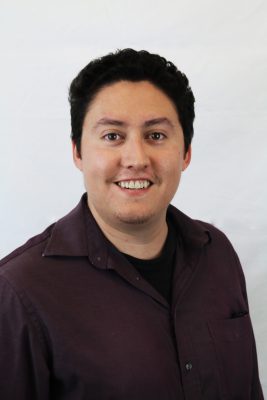Dear Colleagues,
The ongoing COVID-19 epidemic is accompanied by extraordinary measures attempting to contain it. First and foremost, The Graduate School is concerned for the safety, health, and well-being of students, faculty, and staff of the University of Connecticut and the communities in which they live. Please heed the advice of public health experts to protect yourself and those around you.
Governor Lamont signed an executive order on March 20 directing all non-essential functions in Connecticut to suspend operations beginning Monday, March 23 at 8:00pm. As a result, the President, Provost, and Vice President for Research have determined that all on-campus research at all campuses must stop and all labs close at the same time. The suspension of activity will last through at least April 22. The University will allow only critical research support functions to continue. Critical functions are those that are necessary to allow research to resume after this suspension (e.g., care of research animals or plants, maintenance of cell lines, maintenance of research equipment). Please refer to the Critical Research Infrastructure Inventory for more information. In addition, all University-sponsored travel out-of-state has been suspended, except in very limited circumstances. Please refer to the COVID-19 Travel Advisory and Guidelines for more information.
Graduate students and their advisory committees should immediately develop plans for thesis and dissertation research that take into account these restrictions. We know that Governor Lamont’s restrictions to non-essential functions are now in place through at least April 22, but it is prudent to plan for the possibility that they will last substantially longer. Graduate students and their advisory committees should plan for the possibility that research involving on-campus facilities or out-of-state travel will continue to be limited through the entire summer, possibly even longer. The appropriate modifications to research plans will differ dramatically from discipline to discipline. They are likely to differ from student to student within disciplines. The Graduate School has developed a set of guidelines and questions for graduate students and faculty to consider as they adapt to these challenges. Please consult them carefully, and contact The Graduate School at gradschool@uconn.edu if you have any questions. Given the unchartered territory, we also welcome your ideas that might be useful to other graduate students and faculty. We will update the guidelines periodically as new information and advice becomes available.
Please take care of yourself and everyone around you.
Kent Holsinger
 Shreya Kulkarni, PhD candidate of Pharmaceutical Sciences in the School of Pharmacy, has been awarded the Young Investigator Award by Baxter for her research on ‘Reconstitution of high concentration lyophilized protein formulations.’ Shreya was presented with the award at Baxter’s international headquarters in Deerfield, Illinois. Shreya and her advisor, Professor Robin Bogner, presented the research to members of Baxter’s organization and winners of other awards. Reflecting on the award, Shreya stated that “it is a great honor to receive this highly competitive award. None of this would have been possible without the continued support and guidance from my advisor Professor Robin Bogner. Dr. Bogner has been instrumental in motivating me to delve deeper into every research problem. I would also like to thank my thesis committee and our collaborators for the helpful discussions and suggestions on my thesis research. I feel very lucky to be part of the Pharmaceutics program at UConn!”
Shreya Kulkarni, PhD candidate of Pharmaceutical Sciences in the School of Pharmacy, has been awarded the Young Investigator Award by Baxter for her research on ‘Reconstitution of high concentration lyophilized protein formulations.’ Shreya was presented with the award at Baxter’s international headquarters in Deerfield, Illinois. Shreya and her advisor, Professor Robin Bogner, presented the research to members of Baxter’s organization and winners of other awards. Reflecting on the award, Shreya stated that “it is a great honor to receive this highly competitive award. None of this would have been possible without the continued support and guidance from my advisor Professor Robin Bogner. Dr. Bogner has been instrumental in motivating me to delve deeper into every research problem. I would also like to thank my thesis committee and our collaborators for the helpful discussions and suggestions on my thesis research. I feel very lucky to be part of the Pharmaceutics program at UConn!”
 Thanks to all who attending our Grad Gatherings Puppy Playtime event this October. We are grateful that North Star Dogs could partner with us to hold this event and hope to bring more dogs to campus again at some point in the future!
Thanks to all who attending our Grad Gatherings Puppy Playtime event this October. We are grateful that North Star Dogs could partner with us to hold this event and hope to bring more dogs to campus again at some point in the future! Sarah McAnulty of the University of Connecticut’s Department of Molecular and Cell Biology has received a American Association of University Women American Dissertation Fellowship. With this award, Sarah will conduct her thesis work on the Hawaiian bobtail squid and its symbiosis with a bioluminescent bacterium, Vibrio fischeri. Sarah’s work is uncovering how animal immune cells distinguish between their beneficial bacteria and others they encounter. For more information about AAUW Fellowships, please visit:
Sarah McAnulty of the University of Connecticut’s Department of Molecular and Cell Biology has received a American Association of University Women American Dissertation Fellowship. With this award, Sarah will conduct her thesis work on the Hawaiian bobtail squid and its symbiosis with a bioluminescent bacterium, Vibrio fischeri. Sarah’s work is uncovering how animal immune cells distinguish between their beneficial bacteria and others they encounter. For more information about AAUW Fellowships, please visit:  Marc Reyes of the University of Connecticut’s Department of History has received a Fulbright U.S. Student Program Award to India from the U.S. Department of State and the J. William Fulbright Foreign Scholarship Board. Reyes will conduct research in Delhi, Mumbai, and Ahmedabad. He will be affiliated with Jawaharlal Nehru University’s School of International Studies. His project, “In the Circle of Great Powers: India, the United States, and the Postcolonial Atomic State, 1947-1974” examines the political and cultural contexts of India’s atomic energy program and U.S. involvement in the development of their nuclear weapons program.
Marc Reyes of the University of Connecticut’s Department of History has received a Fulbright U.S. Student Program Award to India from the U.S. Department of State and the J. William Fulbright Foreign Scholarship Board. Reyes will conduct research in Delhi, Mumbai, and Ahmedabad. He will be affiliated with Jawaharlal Nehru University’s School of International Studies. His project, “In the Circle of Great Powers: India, the United States, and the Postcolonial Atomic State, 1947-1974” examines the political and cultural contexts of India’s atomic energy program and U.S. involvement in the development of their nuclear weapons program.